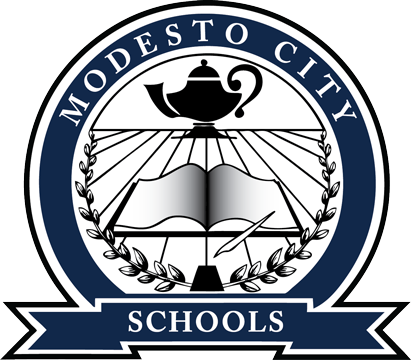Modesto City Schools (MCS) observes February as National Black History Month, with this year’s official theme, “Black Americans and Labor.”
As MCS honors Black history, Superintendent Sara Noguchi expressed the importance of education in cultivating understanding and unity.
“Black history is American history,” Noguchi said. “By celebrating these stories, we not only honor the past but inspire our students to create a brighter future.”
The Black Leaders United (BLU) Executive Committee, made up of MCS educators and staff, honors the contributions of those who built, nurtured, and transformed the nation. As part of this celebration, each committee member has selected an influential Black American icon who has profoundly impacted their lives and work. Their reflections are intended to celebrate the past while inspiring the future.
From civil rights pioneers to cultural trailblazers, the people they chose to reflect on embody the legacy of Black History, particularly in the areas of labor and progress.
“National Black History Month is a time to reflect on the achievements and sacrifices of those who came before us,” said Antoinette Chambers, executive secretary to the MCS Board of Education. Chambers chose to honor Odessa P. Johnson, the first Black American teacher at Modesto High School and a member of the MCS Board of Education from 1991-2007. Johnson’s groundbreaking career set a standard for equity and leadership in education, paving the way for future generations of educators.


Fallon Ferris, director of human resources, draws inspiration from Madam C.J. Walker, the first self-made female millionaire in the United States. Known for her pioneering work in Black haircare, Walker’s legacy of entrepreneurship and philanthropy resonates deeply with Ferris.
“Her story reminds us of the power of innovation and resilience,” Ferris said, noting how Walker’s success created economic opportunities for countless others.
For Elizabeth Stewart Garmon, an English and theatre teacher at Enochs High School, Black History is deeply personal. She celebrated her aunt, Ethel Ray Nance, an activist and writer who contributed to the Harlem Renaissance and championed civil rights on the West Coast.
“Her work inspires me to continue advocating for my students and community,” Garmon said, drawing connections between her aunt’s activism and the broader contributions of Black Americans to labor and social justice movements.
Will Patterson, equity and intervention specialist, honored Virgil Abloh, the first Black artistic director at Louis Vuitton and a visionary in the fashion industry whose influence spans generations. Patterson described Abloh’s contributions as a testament to creativity and breaking barriers, focusing on how they intersected with art, labor, and representation.


Nicole Evans, dual enrollment coordinator, drew strength from the words of Sojourner Truth, the abolitionist and women’s rights activist who famously declared, “Ain’t I a Woman?” Evans said Truth’s resilience and faith are guiding principles in her own life—a testament to how Truth’s legacy of advocating for equality continues to inspire.
Other committee members recognized figures such as Martin Luther King Jr., Louis Armstrong, and Charles Hamilton Houston, reflecting the diversity of contributions from Black American leaders across disciplines. This year’s theme, "African Americans and Labor,” underscores the vital role Black Americans have played in shaping the nation’s workforce, from building the infrastructure of the country to leading contemporary movements for workers’ rights and economic equity.
The BLU Executive Committee hopes the reflections encourage conversations about equity and inclusion throughout the district.
To learn about more Black American icons that have influenced other committee members, follow the Modesto City Schools social media pages throughout the month of February.

